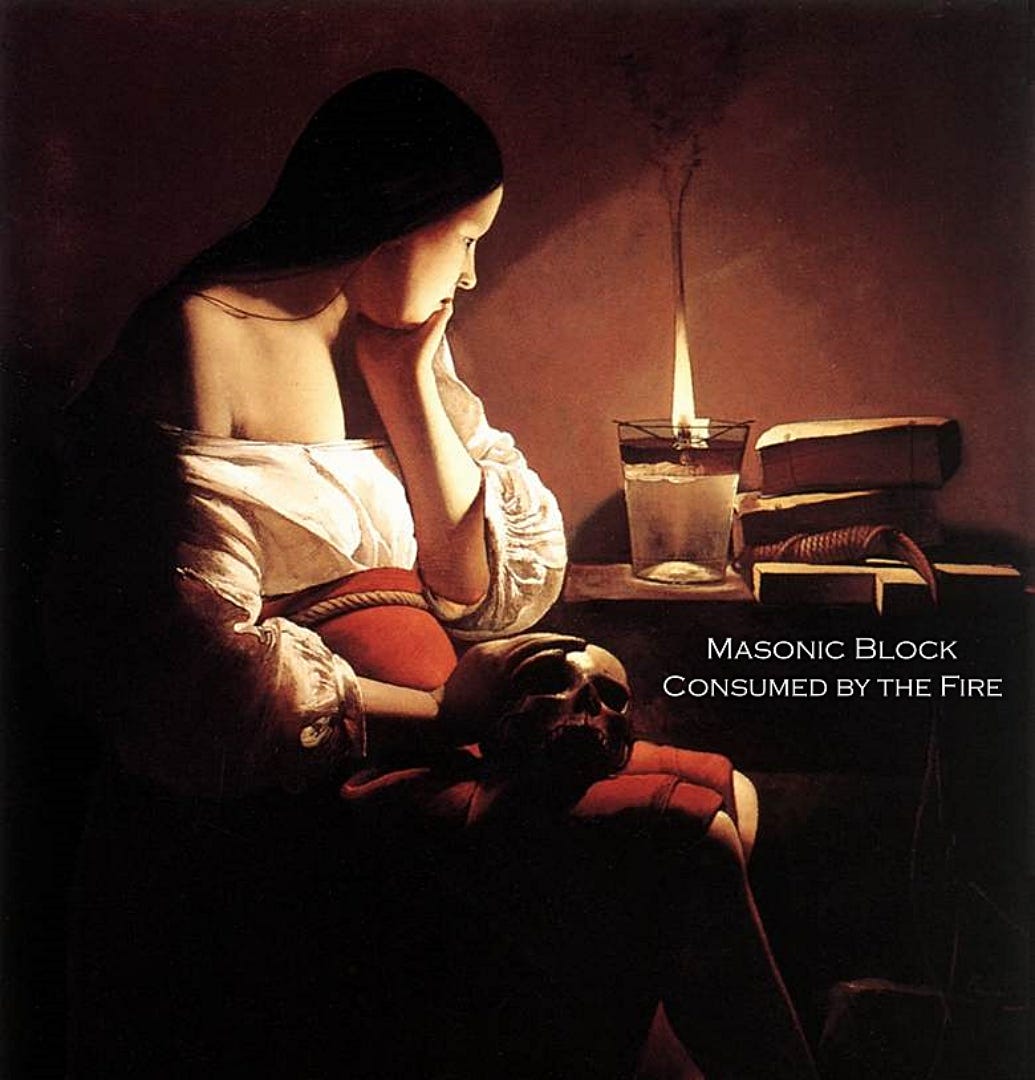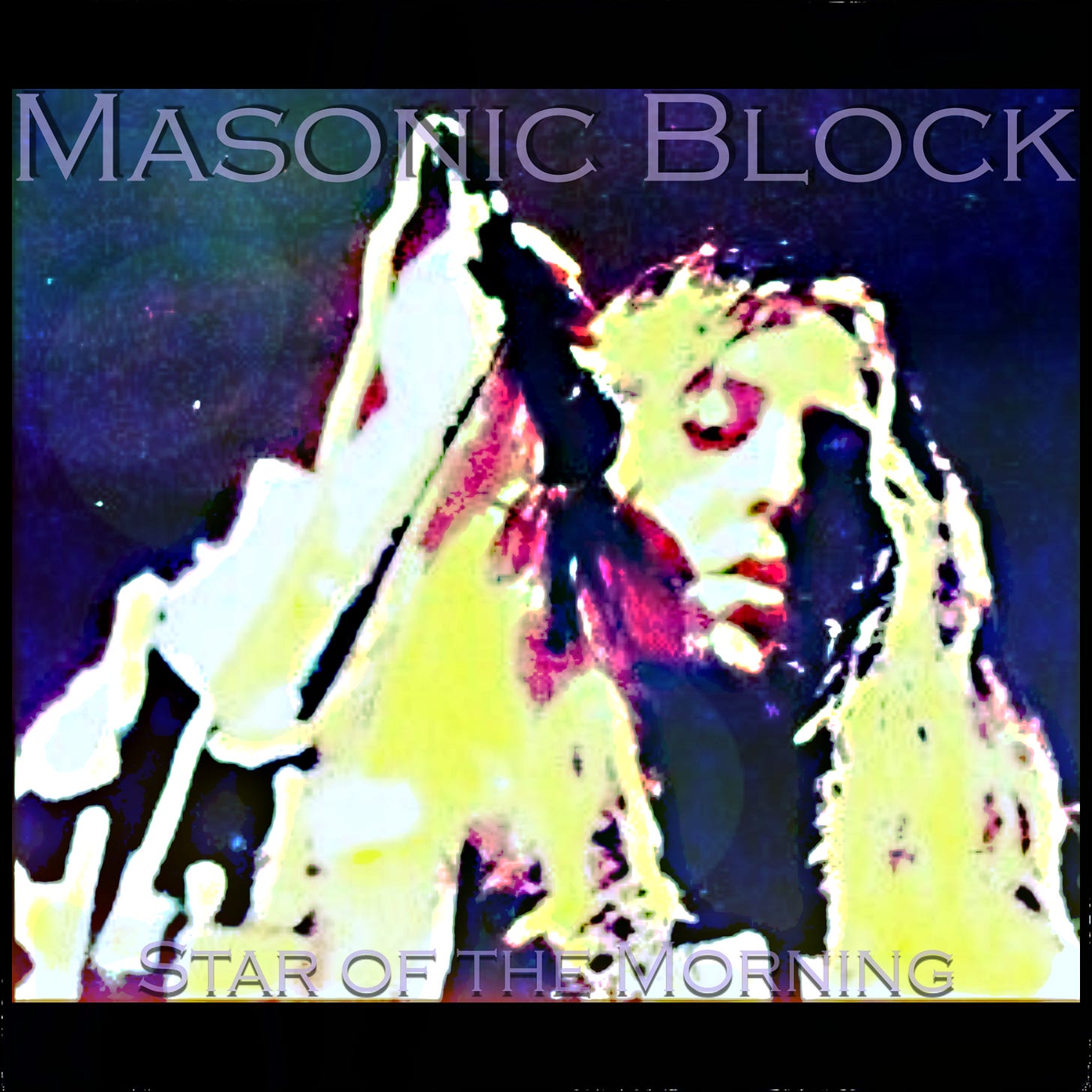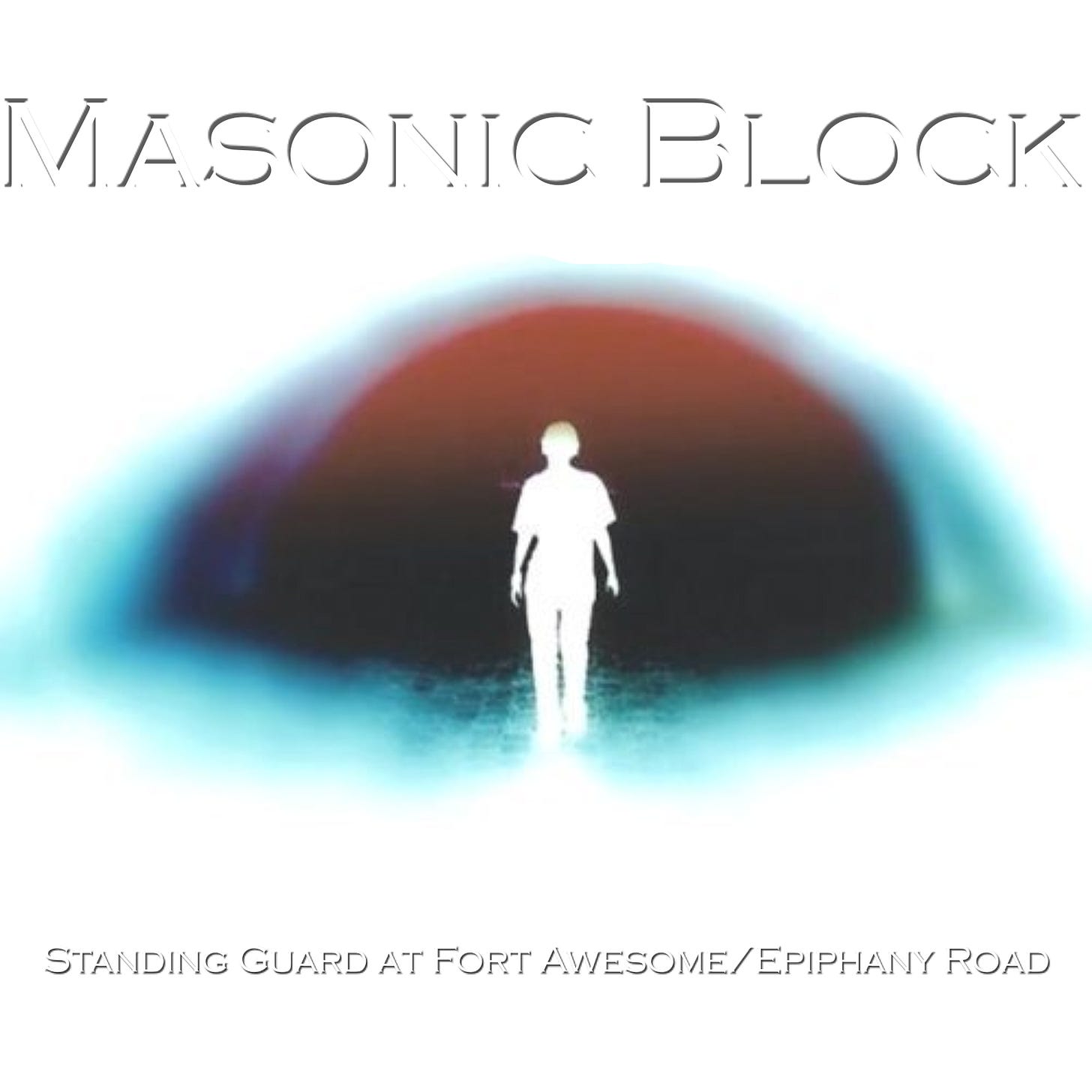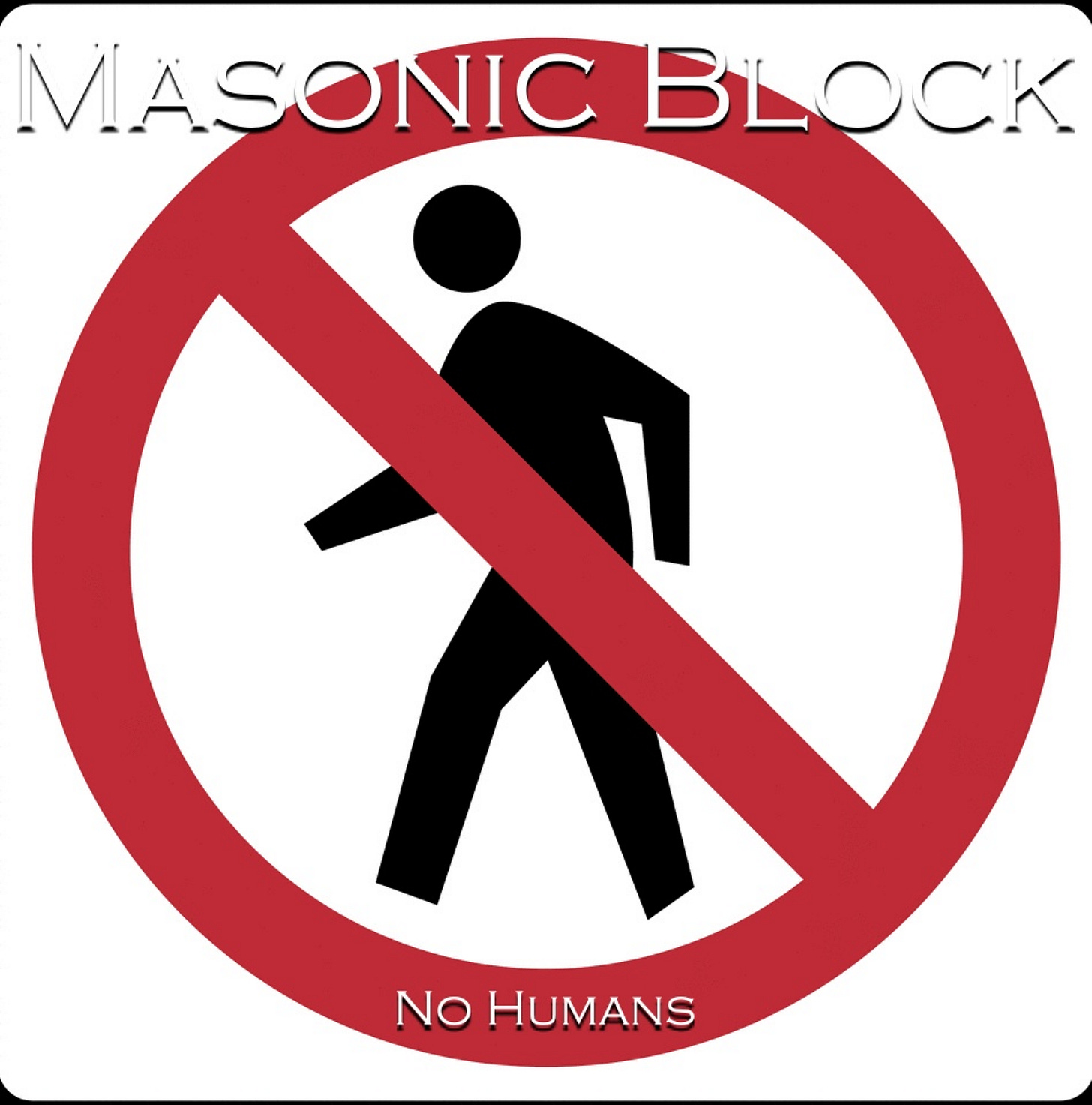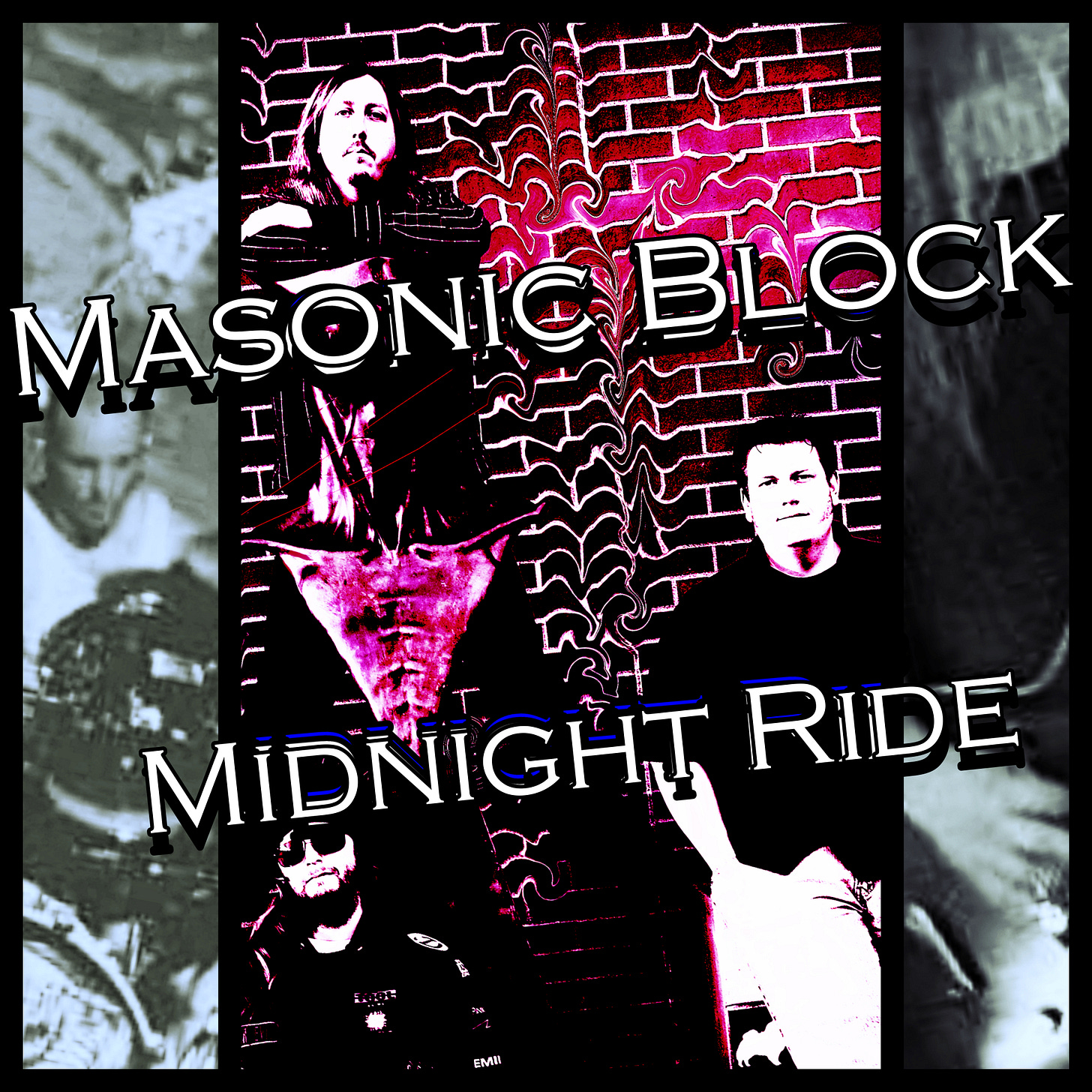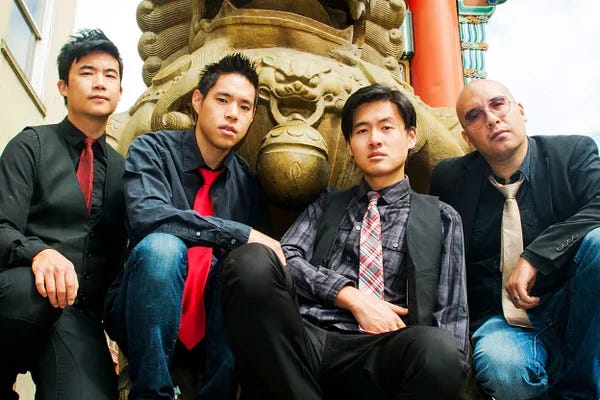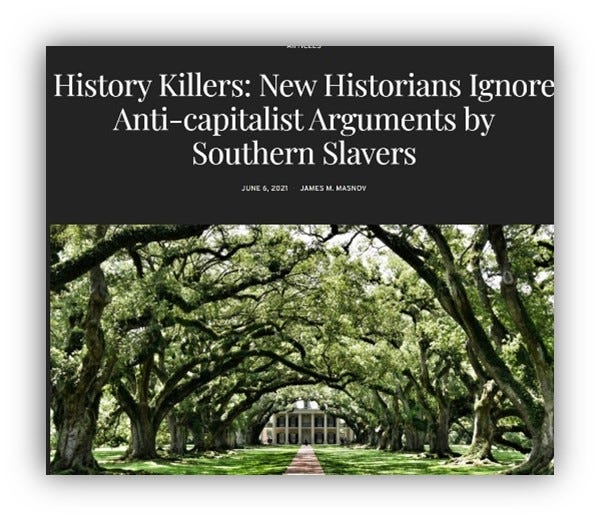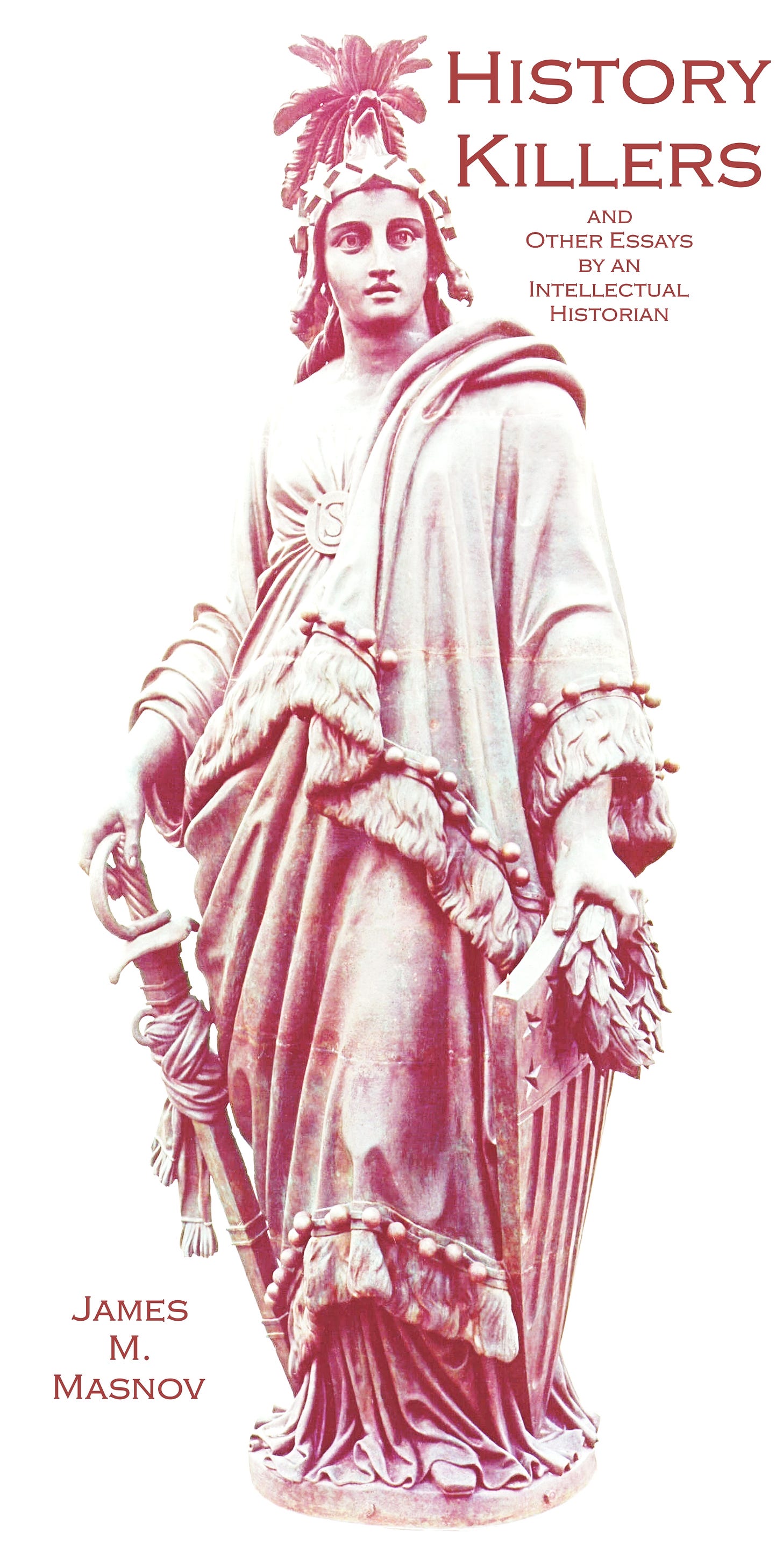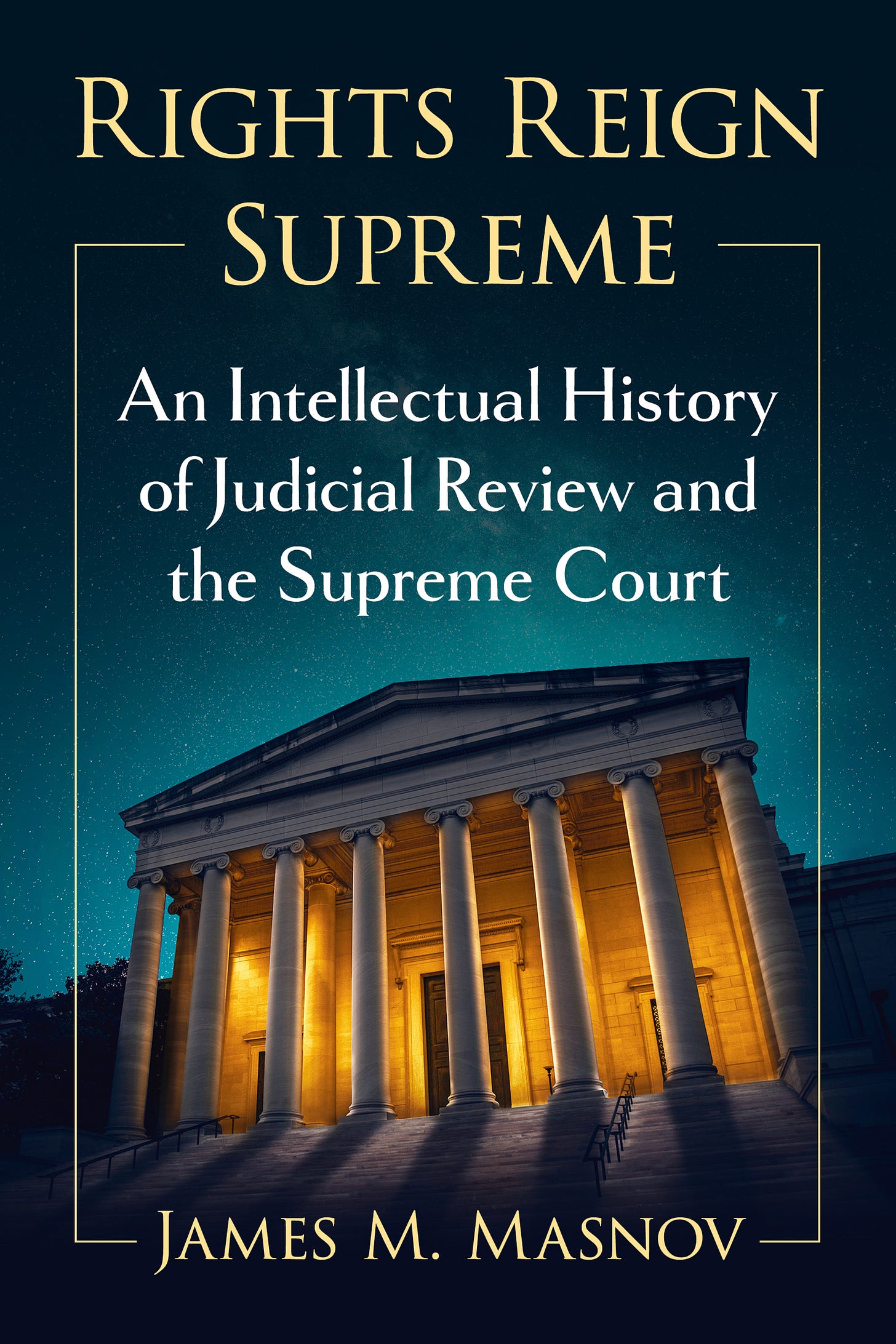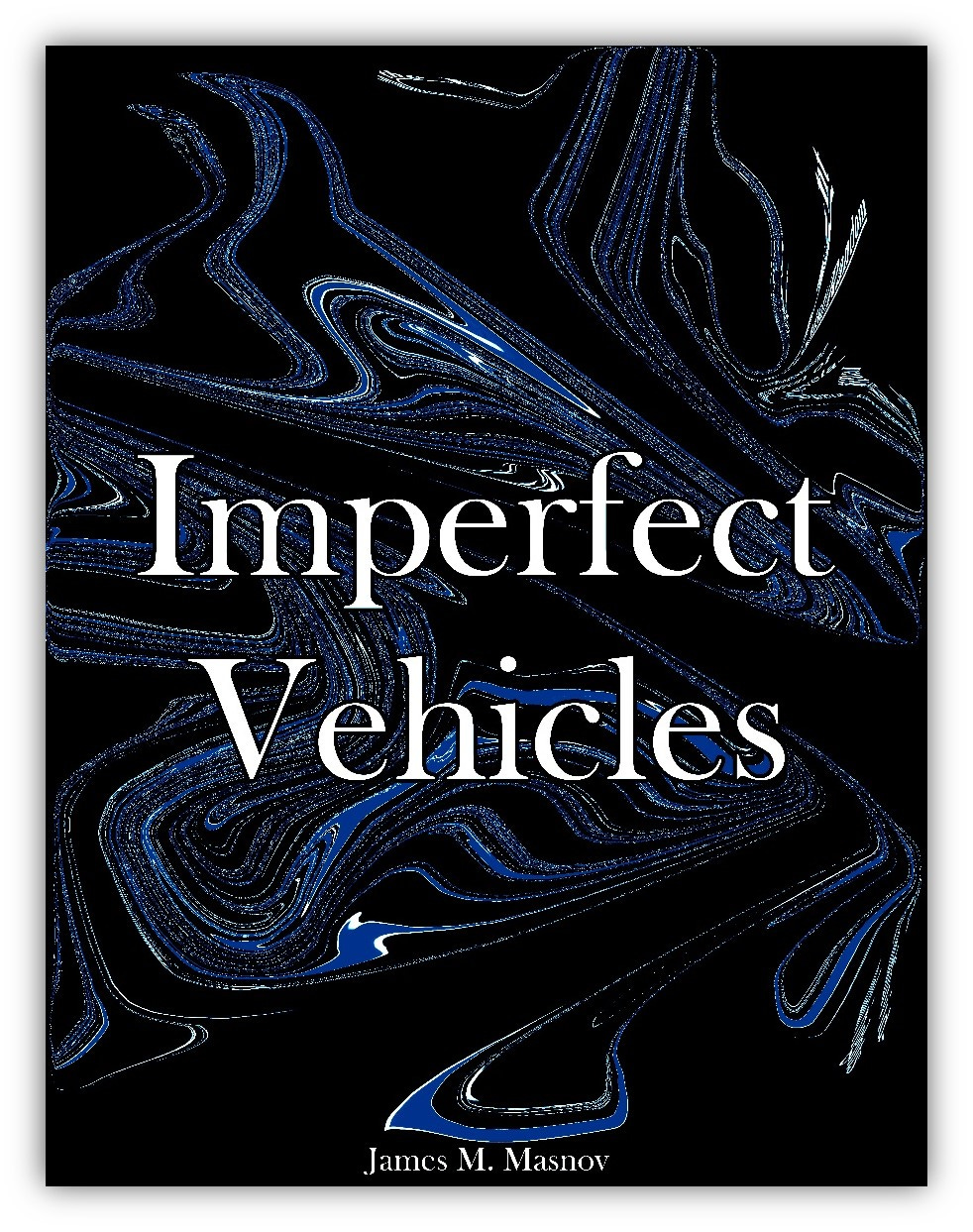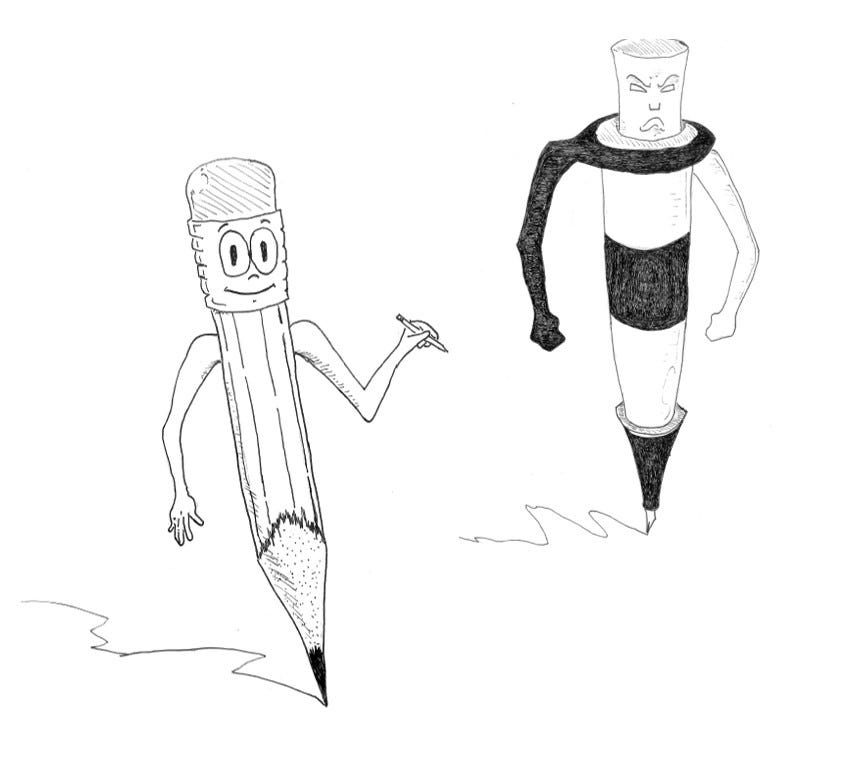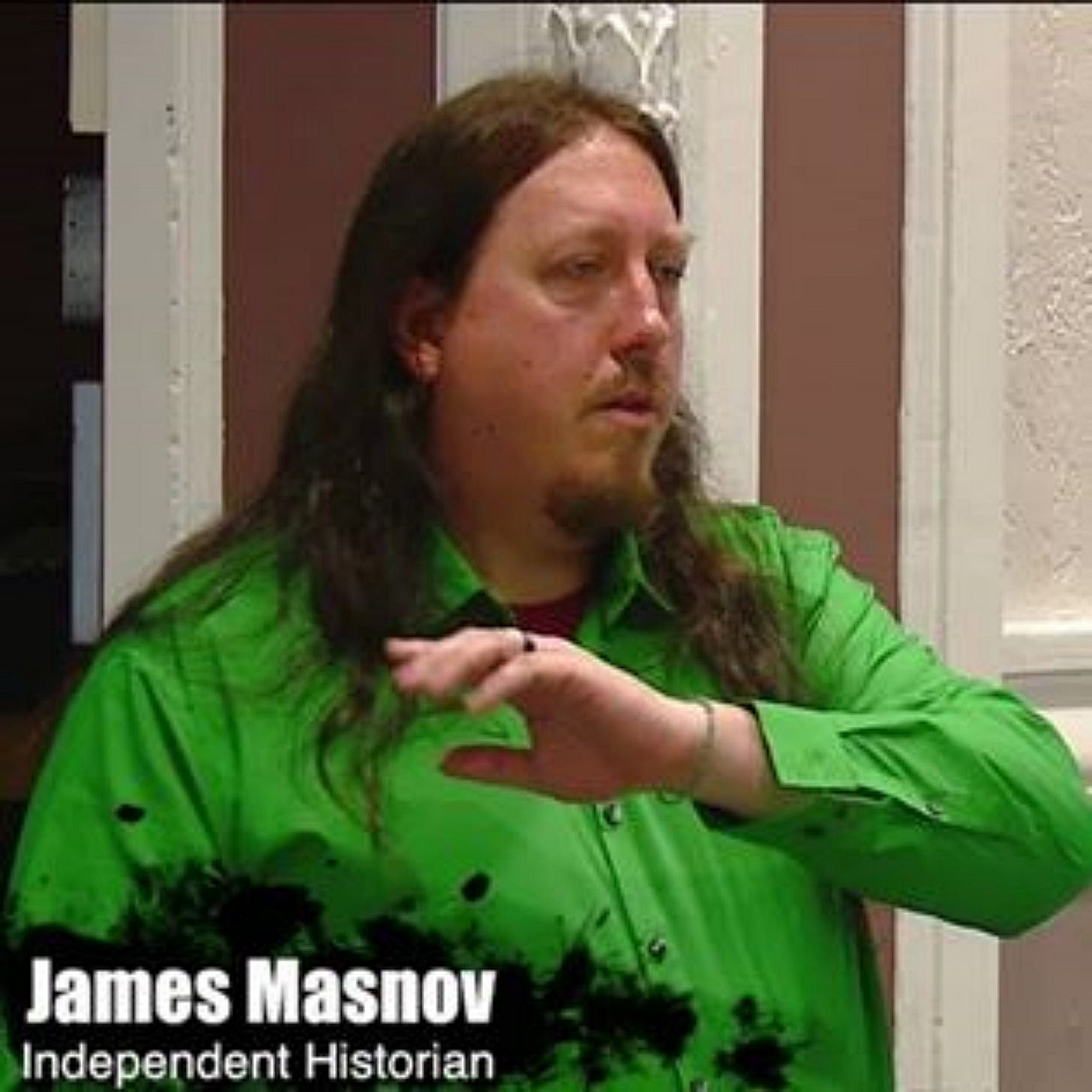As the focus of this publication and of my career, to some degree shifts—or it might be better to say, “evolves”—to the next stage, it seems like a good time to look back upon things thus far. Some of these things will only now begin to be presented in History Killers, even as they defined my life and career for many years. As this publication diversifies its content to share more aspects of my work (while continuing to provide historically-related content and social commentary), it is thus appropriate to provide a sort of primer that acts simultaneously as an introduction for some and a retrospective for others. Some of the projects mentioned below are “in the can” and are simply waiting for release, as noted. The anthology that follows below, however, is not comprehensive, but it is complete enough to paint a picture, of sorts, of where I am going and where I have been. -JM
James M. Masnov is a writer of numerous articles, three works of history (two anthologies of essays and one monograph), a children’s book, writer/composer/producer of twelve studio albums of original music, founder of the History Killers social commentary newsletter, founder of History is Human: An Academic Journal of American Intellectual History, guest lecturer to numerous institutions including Western Oregon University, Portland State University, and Willamette Heritage Center, and regular contributor to radio and podcast media, including KYKN’s Newsmakers, KMUZ’s Northwest Tech and Willamette Wake Up, KSLM’s Movers and Shakers, and the Federalist Radio Hour with Emily Jashinsky. He has been an adjunct professor of American History (including the entire three-part U.S. History survey: HST 201, 202, and 203, and the History of America in the 1960s: HST 237) at Chemeketa Community College and Linn-Benton Community College in Oregon (including teaching a class of his own design: The History of the U.S. Supreme Court, based on research conducted for his book, Rights Reign Supreme: An Intellectual History of Judicial Review and the Supreme Court).
Now, he is a Columbian Distinguished Fellow at George Washington University’s History Department in Washington, D.C.. His historical work has examined the role of natural rights philosophy on constitution-making in the early American republic and its legacy in the unfolding of rights-assertions as part of the intellectual history of the United States. He has also written about the history of the Ninth Amendment, cultural expression during Glasnost-era Russia, the role of the Fourteenth Amendment in the enforcement of the Bill of Rights, American cultural history, and the development of civic virtue as a republican principle and its influence upon nineteenth-century reform movements. He is now focusing his scholarship toward the history of the U.S. Constitution’s Fugitive Slave Clause, the subsidiary fugitive slave laws that resulted in 1793 and 1850, and the overlap between the institution of slavery and other forms of non-criminal compelled service from the early republic to the past century.
Prior to pursuing work in the field of history, James was a writer, composer, performer, and producer of original music that transcended the boundaries between rock, acoustic folk, electronic, and experimental genres. Under the moniker Masonic Block, James—both as a solo artist and with his band, toured the United States a number of times between 2007 and 2014, from regional tours on the west coast and southwest, to cross-country, nation-wide tours, playing all of the major live music markets that span the U.S.. During these years, and those that followed, James ultimately produced twelve studio albums of original music, plus two volumes of live tracks and outtakes. Though his historical work (teaching/researching/writing/etc.) now accounts for the vast majority of his professional time, there is no doubt that his years of work as a songwriter, musician, performer, and producer are significant to his background and career. Moreover, James truly discovered his love for American history while touring the country. Between gigs, the hours of travel between American cities on the road gave way to time reading the works of Gordon S. Wood, Bernard Bailyn, Pauline Maier, Annette Gordon Reed, and other historians and scholars. Though an underdeveloped love of history existed from childhood, this was not cultivated until time spent on the road as an independent musician, reading books. With this in mind, it is fair to say that James’s life as a touring musician facilitated his eventual work as a scholar of American history, and as a professor. He is excited to now be working and conducting research as a Columbian Distinguished Fellow at George Washington University in Washington, D.C., where he will be residing for the next several years.
Anthology of Work: Music – Masonic Block
Masonic Block album: Consumed by the Fire (2008)
Going Home
I See it Blind
Silver Sunrise
Just for Today
These Cold and Empty Arms
Put Me Down
Zen Detective
Feeling Sunday Morning
Tale of Billy and Michelle
Born Silver
Masonic Block album: Star of the Morning (2010)
Nothing More Frightening
My Main Circuit
Human Placebo Embryo Toy
6:23
Like Sheep to Slaughter
Wow
Red, with a Green Cape
Sauce on the Sidewalk
Six String Anthem
Masonic Block album: Standing Guard at Fort Awesome/Epiphany Road (2012)
Rope
The Harem
Green and Greed
Now Crack My Shell
Liberation Song
Kika
Burn
My Love
Kya
To Touch the Face of God
Masonic Block album: Sonic Low-Fi Abortions (2013)
Sex Electric
E Media C
An Entire Generation Commits Suicide
One Tribe
Palindrome
Getting Going Around
Untitled
Masonic Block album: FATHOM (2014)
Sacrosanct
Rabbits’ Blood and Cocaine
You, Me, Us, We
Poseidon’s Final Libretto
Lisenbee Song
Painful Love
Blood ‘n’ Fire
Geiargahoo
Tale of Billy and Michelle (live)
The Fight is a Sin
Masonic Block album: Poet, Guru, Clown (2015)
Raven
They Say
Neutral Never
Everything Burns Away
Something Dreamy
Sandra’s Song
Never Want to Fail You
Childlike High
A Dream
Mariyah JorDaine
Masonic Block album: No Humans (2016)
This Fire Will Melt Your Heart
Life is Short, Live it Up
Epoch
You Don’t Deserve It
A Night at the Bakery
Masonic Block album: Broken Open (2017)
Broken Open
Masonic Block album: Order. Chaos? Order. (2018)
id
Tin Can
Testament, Book, Chapter, and Verse
Secret Dolphin
And
Great Expectations
Freeways and Photographs
I Would Move Mountains
Confident Fool
The Spider Feasts on a Still-Beating Heart
Masonic Block album: Paintings (2020)
Paintings
Perceptions (Your Jaded Name)
Ariel Stab
Get Through This
Superposition
No Envy
Masonic Block album: Your Heroes Will Let You Down. That’s When You Learn From Them the Most. (2023)
It’s All Showbiz
Jam #1
Whisper
Made of Glass
Gentle Rape
Masonic Block album: Midnight Ride (2024)
Their Eyes Laugh and Their Mouths Cry
From Now On
Oh, How I Hated You
No Words
Are See
Spoken World
Why Bother
In the Wind
Masonic Block album (double A-Side): Aftershocks/Resurgence (2025)
Aftershocks of Political Glory
Resurgence
Masonic Block album: Living Proof: Live Tracks, Demos, and Rarities—Volume One (2025)
Everything Burns Away (live)
Zen Detective (live)
Just for Today (live)
Liquid
From Now On (rehearsal take)
Poseidon’s Final Libretto (live)
Sacrosanct (live)
Never Want to Fail You (live on KAOS Radio)
From Now On (Matt Stevens on drums version)
Infinite Agape
Green and Greed (instrumental version)
Masonic Block album: Living Proof: Live Tracks, Demos, and Rarities—Volume Two (2025)
Now Crack My Shell (soundcheck)
Wow (soundcheck)
Kika (soundcheck)
Rope (soundcheck)
Burn (soundcheck)
Green and Greed (soundcheck)
Dream Lover (soundcheck)
Suspicious Minds (false start 1)
Suspicious Minds (false start 2)
Suspicious Minds (false start 3)
Suspicious Minds (soundcheck)
Human Placebo Embryo Toy (soundcheck)
I Twisted Luke and He is No Longer Human
Something Groovy
rEVOLutionary’s song
Jim Marty and Tombo
Masonic Block album: A Selective Retrospective—
Vinyl Exclusive (2026)
Now Crack My Shell
Kika
Green and Greed
Rope
These Cold and Empty Arms
Tale of Billy and Michelle
Going Home
My Love
Liberation Song
Anthology of Work: Writing – Published Articles
(Academic and General Readership)
“’If I Pick Flowers’: Public Art in Glasnost-Era Russia.”
Published by Armstrong Journal of History. Volume 7. No. 2. November 2017.
“Martin Luther King, Jr.: Jeffersonian.” Published by Pure Insights.
Volume 6. No. 1. March 2018.
“Matal v. Tam (2017).” Published by the Oregon Encyclopedia. October 2019.
“History Killers: The Academic Fraudulence of the 1619 Project.”
Published by New Discourses. July 2020.
“History Killers: Illinois Rep. Calls for End to History Education.”
Published by New Discourses. August 2020.
“History Killers:
‘New Historians’ Ignore Anti-Capitalist Arguments by Southern Slavers.” Published by New Discourses. June 2021.
“Supreme Court Decided to Keep Torture a Secret.”
Published by Brownstone Institute. October 2022.
“Where are the Historians? : What the CRT Debate is NOT About.”
Published by Past Tense. Scheduled for publication in 2025.
Anthology of Work: Writing – Independent Publications
History Killers
Independent Publication (ongoing).
Founded by James M. Masnov in April 2021.
Includes numerous essays and op-ed articles rooted in historical analysis and
social commentary.
History is Human: A Journal of American Intellectual History
Independent Publication (ongoing).
Founded by James M. Masnov in June 2024.
Includes numerous academic history essays and articles by Masnov and others, which seek to embrace the complexities of American history without falling into cynical nor utopian explanations or rationales.
Anthology of Work: Writing – Books
History Killers and Other Essays
by an Intellectual Historian (2022)
A collection of articles and essays that speak to the state of historical literacy in the United States, and the exploitation of historical ignorance by partisan actors in education, the media, and government. The anthology ultimately offers alternative examples and approaches to an understanding and appreciation of American history that is neither cynical nor utopian. History Killers instead argues that all historians and all liberty-minded people must exercise critical thinking, seek truth wherever it leads, and continuously challenge their own preconceptions. More than a mere critique of current trends, Masnov presents analyses related to rights theory, slavery, and secularism that bring a new perspective to American history that is simultaneously accessible and scholarly.
Rights Reign Supreme:
An Intellectual History of Judicial Review
and the Supreme Court (2023)
Judicial review, the power of the United States Supreme Court to nullify unconstitutional state and federal legislation, has been attacked and revered for centuries by scholars and statesmen alike. It is a remarkable power that checks the growth of, and counters overreach by, the other departments of government: the legislative and executive branches. The legitimacy of judicial review has been questioned by many, and the politicized circumstances which cemented it in American jurisprudence during the Marbury v. Madison case in 1803 further complicates debate over its validity. The issue has only become more relevant over the past century. The result has been for politicians of both major political parties (as well as scholars) to decry the antidemocratic nature of the judicial power.
The central aim of this book is to assert that the American judiciary is intended to be an antidemocratic check upon the other branches and upon the people themselves. Its power of judicial review carries an abundance of legal precedent—prior to Marbury and even prior to the creation of the U.S. Constitution—and is essential to the survival of the constitutional republic. Furthermore, the power of judicial review does more than inhibit the power of the other branches, important as that is. The central point of this work is that the Court’s power of judicial review is itself an instrument of natural rights theory, manifested and given life through the power of an independent judiciary.
Imperfect Vehicles (2025)
A collection of essays that examines American history, historians, the law, and culture in the United States. Some works analyze the field of history itself and some of its best-known figures, while others scrutinize the role of other disciplines and academic trends and their impact on the broader discourse. Some essays within this collection are works of social commentary, yet others are academic explorations into the arc of American culture, from the seventeenth century, to the American Revolution and early republic, to the nineteenth century, to the varied instances of cultural expression in different decades of the twentieth century.
Persons in history are imperfect vehicles, including those who accomplished so much. Indeed, their accomplishments are all the more extraordinary precisely because of their very real shortcomings. In the sober study of history, one fact does not cancel out another. They co-exist, and the tension between them is where the greatest opportunity for interesting and original historical discussions can, and should, emerge.
Anthology of Work: Writing – Woodrow and Inkus (Children’s Book)
Woodrow and Inkus (2025)
Anthology of Work: Professional Teaching Experience: College-Level History
Adjunct Professor of History at Chemeketa Community College,
fall 2022 – summer 2024.
Classes taught:
HST 201 (U.S. History I), HST 202 (U.S. History II),
HST 203 (U.S. History III), HST 237 (U.S. History in the 1960s)
Adjunct Professor of History at Linn-Benton Community College,
summer 2023 – summer 2024
Classes taught:
HST 201 (U.S. History I), The History of the Supreme Court (Community Ed. course)
Anthology of Work: Media Appearances and Public Speaking Engagements, 2017 - Present (including numerous universities and colleges, public institutions such as the Willamette Heritage Center, and news/talk media including KYKN’s “Newsmakers” and “Oh the Humanity,” KSLM’s “Movers and Shakers” and “Wake Up Salem,” KMUZ’s “Northwest Tech” and “Willamette Wake-Up,” “The Lou Perez Podcast,” “The Federalist Radio Hour with Emily Jashinsky,” and more).
Anthology of Work:
Ongoing Scholarship/Teaching – Columbian Distinguished Fellow,
fall 2024 – spring 2029
George Washington University History Department, Washington, D.C.
Discover the work of James M. Masnov more deeply at the URLs and links listed below. To reach James for media inquiries, public speaking engagements, and related questions, email: ariel_stab@protonmail.com.
James M. Masnov’s books are available wherever books are sold, including independent booksellers as well as Amazon. For example, Rights Reign Supreme: An Intellectual History of Judicial Review and the Supreme Court can be found at Amazon, can be ordered through your local bookstore, or can be ordered directly through the publisher, McFarland Books, at https://mcfarlandbooks.com/product/rights-reign-supreme/and at rightsreignsupreme.com. You can also order it here.
Read op-ed articles, works of social commentary, and view/listen to other related media here at History Killers, (historykillers.substack.com and historykillers.com). If you have not done so already, please subscribe.
Listen to Masonic Block, the music of James M. Masnov, which includes more than a dozen albums of original music, at masonicblock.com, or by clicking here.
Read more works of academic history at James M. Masnov’s independent history journal, History is Human: A Journal of American Intellectual History, at historyishuman.substack.com and at historyishuman.org. Please consider, particularly, becoming a free or paying subscriber of the History is Human Journal by entering your email below.
Stay tuned for ongoing and future projects. Thank you. -James M. Masnov
[James M. Masnov is a writer, musician, historian, and lecturer. He is the founder of History Killers and the History is Human Journal, the author of several books and numerous articles, and has produced over a dozen albums of original music. He is currently a Columbian Distinguished Fellow at the History Department of George Washington University in Washington, D.C.]





